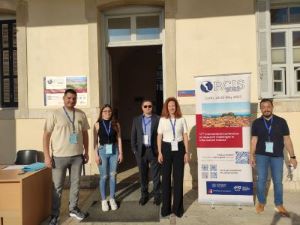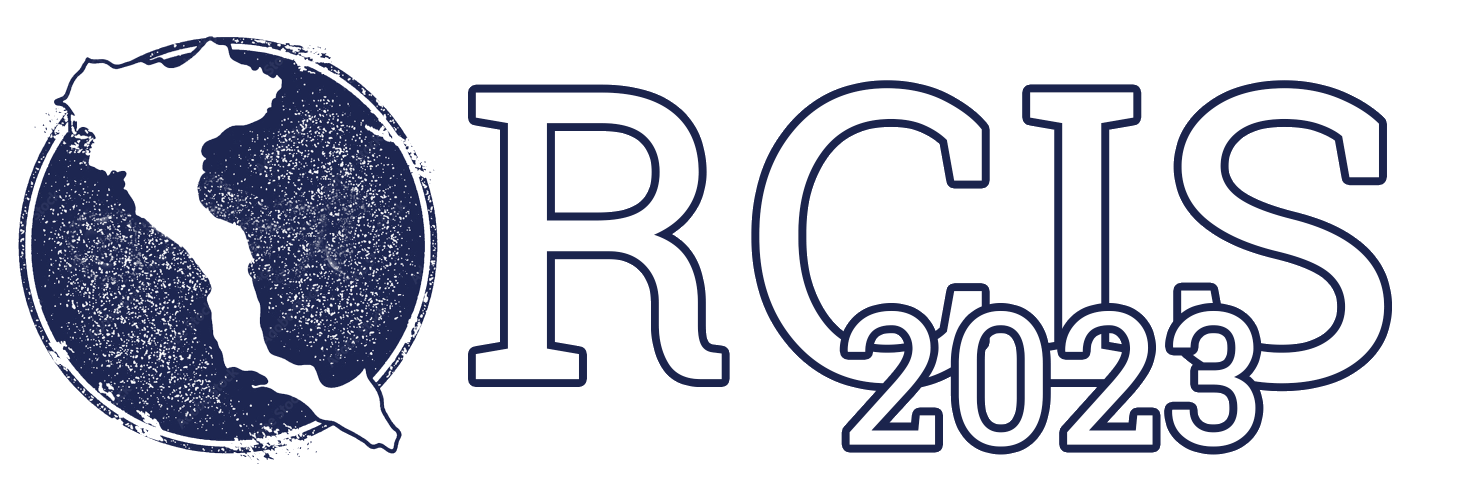Abstracts (*mandatory*): February 5th
Full Papers: February 10th
Place: Corfu, Greece. Hosting from Ionian University and NMSLab from the Department of informatics.
RCIS has become a well-recognised conference on research challenges in information sciences. Organised for the 17th time in a row, RCIS 2023 will be held from May 23 to 26, 2023 in Corfu, Greece.
Tutorials are intended to provide independent instruction (know-how) on a topic of relevance for the RCIS academic and practitioner community. However, we discourage commercial or sales-oriented tutorials. Potential presenters should keep in mind that there might be a varied audience, including novice graduate students, seasoned practitioners, and specialised researchers, and should be prepared to cope with this diversity.
The conference has specific slots for tutorials. They will be organised in sessions of 90 minutes with a free format. Tutorials will run in parallel with other conference tracks, and participation in the tutorials is included in the attendees’ conference fee. A 2-page summary of the tutorials that end up being accepted and delivered will be published in the conference proceedings, which will be published by Springer in the Lecture Notes in Business Information Processing series.
We invite proposals for tutorials that may address one or more of the listed topics below, although authors should not feel limited by them.
The special theme of RCIS 2023 is Information Science and the Connected World. It reflects the role of information technologies and infrastructures in a world where everyone - and increasingly everything - is permanently connected through technology. In this hyper-connected world, information systems can both be a blessing - as witnessed by the rapid global research collaboration to counteract the Covid crisis - and a curse - as witnessed by the wide and rapid spread of disinformation, for example about Covid and its countermeasures.
Beyond the special theme for RCIS 2023, the conference welcomes tutorial submissions from any domain of Information Science. The list of topics includes, but is not limited to:
Information Systems and their Engineering
|
User-Oriented Approaches
|
Data and Information Management
|
Enterprise Management and Engineering
|
Domain-specific IS Engineering
|
Data Science
|
Information Infrastructures
|
Reflective Research and Practice
|
Tutorial proposals are limited to 5 pages. They must include each and every of the following elements:
- Title;
- 150-word abstract;
- The expected background of the attendees;
- Learning objectives of the tutorial;
- Structure of contents or activities; that is, a description of how they support the learning objectives, and how they will be presented to the attendees including a timetable that clearly indicates how the interaction with the audience will develop during the tutorial (tutorials should last minutes);
- Support materials. A concise description of material(s) that are needed for your tutorial; more specifically, (i) materials relevant to the tutorial that you would like to share prior to the conference, (ii) special requirements or equipment you plan to request for the delivery of the tutorial (subject to approval of the organisers), (iii) materials that will be provided to attendees during the tutorial;
- Added value of the tutorial for the attendees;
- A short bio of the presenter(s);
- A history of the tutorial; that is, whether this tutorial (or any derived version of it) has already been delivered in other conferences. If so, detail where and when, and how it was received. Proven track record has to be balanced with the innovative aspect of the tutorial.
In preparing your proposal, you are encouraged to include some creative techniques for teaching and learning. Any teaching approach that ensures active interaction would be greatly appreciated by the RCIS audience. We encourage you to craft a tutorial that can deliver high quality content in an enjoyable way.
Please also consider including printed or online take away material for attendees. For example, templates, checklists, frameworks, etc. that attendees can employ in their own working environments.
We finally encourage authors to optionally include a 1- or 2-minutes video of the speakers, or a few example slides, teasing their tutorial.
By submitting a tutorial proposal, authors implicitly agree that they will indeed attend the conference to deliver the tutorial.
Proposals must be submitted using the conference submission site (https://www.easychair.org/my/conference?conf=rcis2023), where you choose the track “RCIS2023_Tutorials”.
The authors of accepted tutorials will be asked to submit a 2-page summary of the tutorial using the Springer LNCS/LNBIP conference proceedings template (https://www.springer.com/gp/computer-science/lncs/conference-proceedings-guidelines).
Evaluation criteria include the quality of the proposal, the tutorial’s anticipated benefit for prospective participants, its fit within the program as a whole, and the qualification and experience of the presenter(s).
A free registration for the conference will be offered to the main presenter (i.e., to one speaker), unless they are the only paying author of a paper presented at the conference.
| Tutorial submission deadline (strict): | |
| Tutorial notification: | March 14, 2023 |
| Camera-ready version of tutorial summary for conference proceedings: | March 25, 2023 |
| RCIS 2023 Conference: | May 23–26, 2023 |
Tutorial Proposals will be submitted to and evaluated by the Tutorial Chairs:
Raimundas Matulevičius, University of Tartu, Estonia
Natalia Stathakarou, Karolinska Institutet, Sweden








